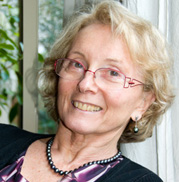 Prof Catherine Weil-Olivier says that while infectious diseases and immunology are covered in medical education curricula, bringing them together under the heading of ‘vaccinology’ would help to focus minds on the importance of immunisation in medical practice.
Prof Catherine Weil-Olivier says that while infectious diseases and immunology are covered in medical education curricula, bringing them together under the heading of ‘vaccinology’ would help to focus minds on the importance of immunisation in medical practice.
Creating a critical mass of vaccinology experts in Europe could even create a powerful network of informed advocates capable of engaging in public debate on vaccines.
“I wouldn’t say there’s no information about vaccines on medical courses. The point is that it’s scattered through lectures on various infectious diseases when prevention is discussed,” she told Vaccines Today.
Other topics relevant to vaccinology are also covered in immunology, pharmacology, pharmacovigilance and public health modules, Prof Weil-Olivier noted, but none of these tells the whole story.
“Vaccinology is about so many fields,” said the Paris-based paediatrician, in a wide-ranging interview covering topics from medical education to France’s efforts to contain the spread of measles.
She said that post-graduate vaccinology diplomas are now offered by some medical schools but this is typically aimed at a small number of qualified health professionals with an interest in the topic rather than reaching all trainee doctors and nurses.
Empowered advocates
Strengthening the vaccinology content of broad medical curriculum would help GPs to feel confident when discussing vaccines with patients, she said, while developing a larger cohort of vaccinology experts could create a super-network of immunisation advocates.
“My perception today is that there is a gap in communication and information and it is in this gap that anti-vaccine lobby has entered,” said Prof Weil-Olivier.
She suggested that doctors need to speak about vaccines rather than cede the debate battle ground to a tiny number of anti-vaccine activists. This includes addressing false rumours that spread through online social networks.
“The question is who is going to take the lead and speak about vaccines. I think it’s not one doctor but probably a collective of doctors. Maybe the idea is to create or organise an association of vaccinology, perhaps at European level.”
Creating accessible, reliable information for the public – about vaccine-preventable diseases and their severity – should also be prioritised.
For her part, she says explaining concepts such as herd immunity is best done by talking about secondary cases in people’s own households: “People will take account of the health of their children or grandparents. In my mind, that is the real message to make them understand herd immunity.”
The French exception?
A better-informed public debate on immunisation is needed in Europe where authorities are committed to eliminating measles and rubella by 2015.
In France, one of the epicentres of Europe’s recent measles outbreaks, wiping out the disease may prove difficult unless surveillance systems are strengthened and public confidence in vaccines improves.
Prof Olivier-Weill said the state is reluctant to take an active role in the national immunisation programme, except when “huge epidemics” like the 2011 measles outbreak hit the headlines, thrusting France into the uncomfortable glare of the international spotlight.
Since then, uptake of the second dose of the MMR vaccine has increased but some areas still have very low immunisation rates. In others, the vaccine coverage statistics are simply not known.
France is divided into 22 administrative regions, of which just nine had reported complete vaccine uptake data at the time of writing. And of the 96 departments, 16 have not reported in full.
It gets worse.
Of those 16 departments failing to keep disease surveillance statistics up to date, two departments have not reported full data for the past five years.
Many of the ‘serial offenders are located in the south-east of France where measles outbreaks hit hardest but there is no sanction for those who routinely neglect to file paperwork, even when disease surveillance is seen as crucial to the continent-wide disease control effort.
Perhaps building vaccinology into a stronger discipline in its own right would have the useful side-effect – creating local vaccination champions to publicly urge health authorities to take these duties more seriously.





anarchic_teapot
July 12th, 2013
I have a horrible feeling I live in one of the 16 départements. One of the biggest measles hotspots in France.
Gary Finnegan
July 15th, 2013
Which one is that?
DR.MOHD.MIZANUR RAHMAN
July 26th, 2013
I am veryuch interested in vaccinology postgraduation.Could you please tell me where I can study vaccinology?
Gary Finnegan
July 26th, 2013
Here is a list of some vaccinology courses
We will have a new video next week which we made at the Antwerp Vaccinology Summer School recently. We’re also looking at whether it is feasible to have more vaccinology material online.
Dr.Mohd.Mizanur Rahman
September 7th, 2013
As per your link I tried to get any post graduation like Master course in Vaccinology but unfortunately no one is fit for me. I am a Pediatrician and really I want to be a vaccinologist. Looking forwards to hearing from you.
Gary Finnegan
September 9th, 2013
Could you tell us where you are based? I’ll see if I can get a longer list of courses and come back to you.
Gary Finnegan
September 9th, 2013
Check our our new video about the vaccinology course in Antwerp
http://www.youtube.com/watch?v=BpT2jE1CTRw&feature=c4-overview&list=UUBqIMmJ53QNXnNkhYNF-AFw
Dr.Mohd.Mizanur Rahman
September 12th, 2013
Thank you for your co operation. I am Bangladeshi and I graduated MBBS from Chittagong Medical College, Chittagong, Bangladesh in 1991 and Diploma in Child Health (DCH) in 1998 from Vienna University.
Presently I am working as specialist in pediatric department at King Abdulaziz Hospital in Jeddah KSA since 1998.I worked at Holy Family Red Crescent Medical College Hospital in Dhaka also in ped.department from 1993 to 2004.